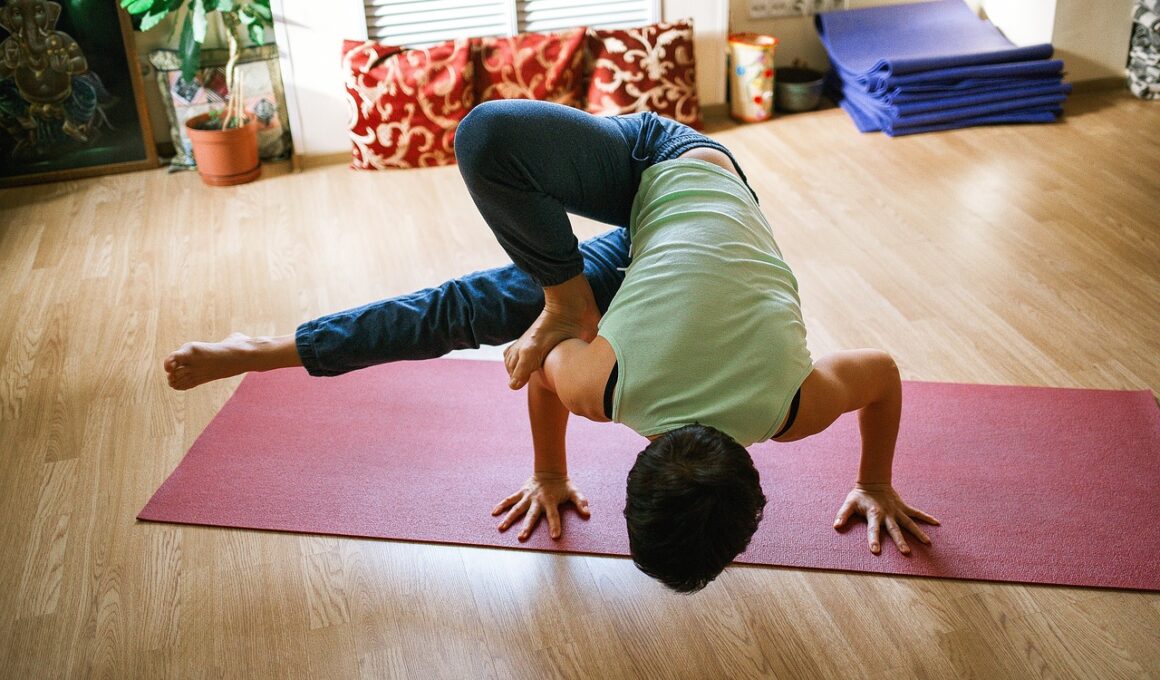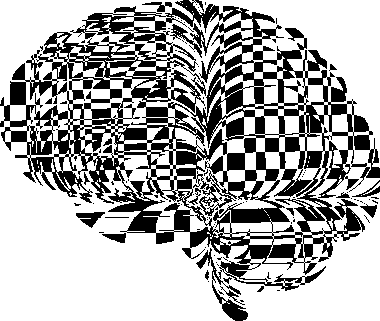How Yoga Can Help Manage Symptoms of Psychotic Disorders
Yoga is proving to be an effective supplementary treatment for individuals with psychotic disorders, particularly schizophrenia. This approach focuses on various techniques including physical postures, breathing exercises, and meditation, all of which contribute significantly to mental health. Engaging in yoga helps practitioners develop a heightened awareness of their thoughts and feelings, which can lead to better emotional regulation. Studies indicate that regular yoga practice can alleviate many symptoms of psychosis, such as anxiety, depression, and stress. Moreover, it enhances mindfulness, making it easier for individuals to recognize negative patterns that need modification. This makes yoga a holistic solution that caters to both the mind and body. In addition to these benefits, yoga promotes relaxation, which is essential for managing stress-related symptoms. By teaching practitioners how to calm their minds, yoga effectively reduces the intensity of psychotic symptoms experienced during episodes. Overall, the combination of physical activity, mindfulness, and breathing techniques makes yoga a valuable tool in the treatment of psychotic disorders, vastly improving quality of life for affected individuals.
One particular area where yoga shows great promise is in its ability to enhance body awareness, which can be particularly beneficial for those experiencing psychosis. People with psychotic disorders often struggle with disconnection from their bodies, leading to increased anxiety and symptoms of their condition. Yoga interventions encourage participants to reconnect with their physical selves in a nurturing and supportive environment. As they progress through yoga postures, practitioners cultivate a sense of safety within their bodies; this is crucial for individuals whose illness may make them feel vulnerable or threatened. Increased body awareness through yoga can also help individuals identify sensations related to anxiety or discomfort before they escalate into full-blown panic or psychotic episodes. In this way, practitioners can effectively utilize yoga as a preventative measure contributing significantly to longer-term mental health stability. Furthermore, yoga can aid in reducing social isolation among individuals with psychotic disorders. By participating in group classes, individuals can connect with others facing similar challenges, thus providing valuable social interaction and support.
Another benefit of yoga for individuals with psychotic disorders is the incorporation of mindfulness practices that help cultivate present-moment awareness. Mindfulness teaches practitioners to fully engage with their current experience rather than becoming absorbed in troubling thoughts or fears about the future. This is especially valuable for those who might face intrusive or paranoid thoughts common in psychosis. In yoga, participants are encouraged to focus on their breath and bodily sensations, fostering a sense of calm and grounding that can counteract dysregulation in emotional states. Additionally, mindfulness has been linked to a decrease in the severity of many psychiatric conditions, including schizophrenia. Research has shown that consistent mindfulness practice can result in improved attention and functioning. This highlights yoga’s effectiveness as it encompasses mindfulness principles directly within its framework. Breathwork, or pranayama, is an essential yoga component that serves to bridge physical practice and mindfulness. Through structured breathwork, practitioners learn to regulate their physiological responses, promoting relaxation and reducing stress levels.
Impact on Daily Functioning
Incorporating yoga into a treatment plan can lead to significant improvements not only in mental health symptoms but also in overall daily functioning. Individuals often report enhanced concentration and better organization skills after engaging in yoga practices regularly. This can be particularly transformative for those whose conditions may impair cognitive abilities. Improved cognitive function allows individuals to carry out daily tasks with greater ease, whether personal, social, or occupational. Furthermore, yoga promotes physical health, which also contributes to improving mental well-being. Individuals often gain physical strength, flexibility, and endurance, which enhances their ability to cope with stressors. The improvements in both mental and physical health create a positive feedback loop, further motivating practitioners to maintain their yoga practice. Building resilience through yoga can cultivate feelings of empowerment and self-efficacy, which are essential for recovery from psychotic disorders. This improved sense of agency can allow individuals to take an active role in their mental health journey. Consequently, regular yoga practice may prove instrumental in enabling individuals to manage symptoms efficiently.
Yoga can also serve as an essential tool for addressing the emotional difficulties commonly faced by those with psychotic disorders. Participants in yoga practice often experience a sense of emotional release that aids in processing unresolved feelings and trauma. This cathartic experience can alleviate feelings of anger, sadness, or distress that might otherwise trigger an episode or worsen symptoms. Additionally, yoga energy flows often leave practitioners feeling refreshed and invigorated, significantly impacting mood and overall emotional health. Emotion regulation is further supported through the practice of various breathing techniques and meditative practices inherent in yoga. These techniques have been shown to positively affect emotional states, providing individuals with strategies they can draw upon when confronted with overwhelming emotions. Enhanced regret and self-reflection can lead to increased self-compassion, an important aspect of nurturing mental health. When individuals develop a kinder and more understanding relationship with themselves, they are better equipped to cope with the challenges that arise from their conditions. Consequently, yoga inherently facilitates emotional growth, providing a pathway to healing.
Research supporting the benefits of yoga for psychotic disorders has been growing steadily over the years, reinforcing its potential as a treatment adjunct. Various studies indicate that individuals who practice yoga regularly show marked reductions in symptoms and improved overall well-being. For example, a study published in the Journal of Mental Health demonstrated that participants who engaged in yoga experienced decreased anxiety levels and fewer psychotic episodes. Additionally, qualitative research illustrates participants reporting increased feelings of calmness and empowerment. However, practical applications of yoga must be approached carefully. Facilitators should aim to create a safe and supportive environment tailored to the unique needs of individuals with psychotic disorders. For yoga practitioners, this may involve adapting specific movements or incorporating trauma-sensitive approaches to facilitate a positive experience. Overall, as evidence accumulates, incorporating yoga into therapeutic settings may offer practitioners a multifaceted approach to enhancing mental health. Mental health professionals might consider recommending yoga to clients seeking additional strategies for managing their symptoms.
Conclusion
Integrating yoga into the lives of individuals with psychotic disorders can facilitate profound improvements in mental health and overall quality of life. Through a combination of physical postures, mindfulness practices, and breathwork, individuals can cultivate a more positive relationship with themselves and their experiences. Yoga fosters greater body awareness, emotional regulation, and social connection, while its structured practices can improve daily functioning. As mental health professionals explore holistic and complementary interventions, yoga emerges as a promising option for enhancing symptom management. While it is essential to receive traditional medical treatment for psychotic disorders, incorporating yoga can complement these efforts and lead to more robust healing experiences. All these benefits together underscore the importance of considering yoga as a staple in recovery programs for psychotic disorders. For those interested in starting yoga, a gentle approach with a focus on individual comfort and safety is recommended. Whether practiced at home or in a class setting, yoga offers valuable tools that can empower individuals on their journeys towards mental health recovery.
Through consistent practice and commitment, those with psychotic disorders can harness the power of yoga to improve their overall mental well-being. This ancient practice not only supports physical and mental health but also encourages emotional growth and resilience essential for navigating life’s challenges. As yoga continues gaining recognition in mainstream mental health care, individuals can cultivate a renewed sense of agency, mastery, and hope for their future. While exploring new pathways for management of psychotic symptoms, individuals should always be encouraged to seek the guidance of trained professionals. Additionally, sharing experiences in supportive environments can greatly enhance the therapeutic benefits of yoga, fostering community and connection. As more individuals embrace the practice, there is significant potential for yoga to transform lives, offering a deeper understanding of oneself and the world. Thus, the intersection of yoga and mental health marks a promising frontier in compassionate care. With ongoing support, dedication, and mindfulness, practitioners can find the balance they seek through yoga, contributing to a greater sense of fulfillment and joy in their lives.








